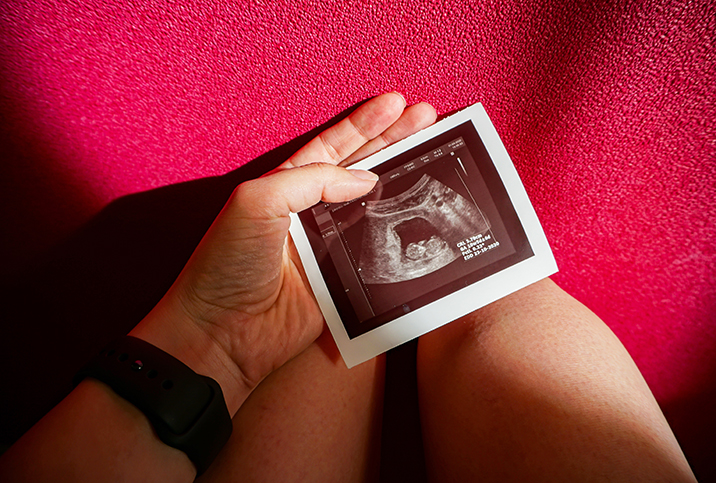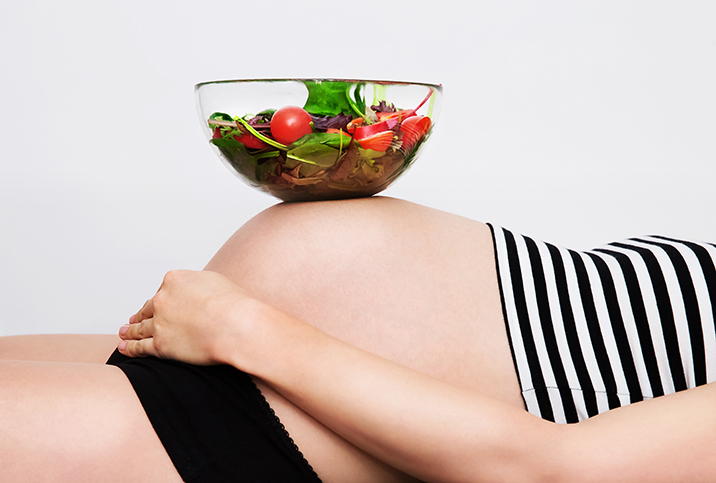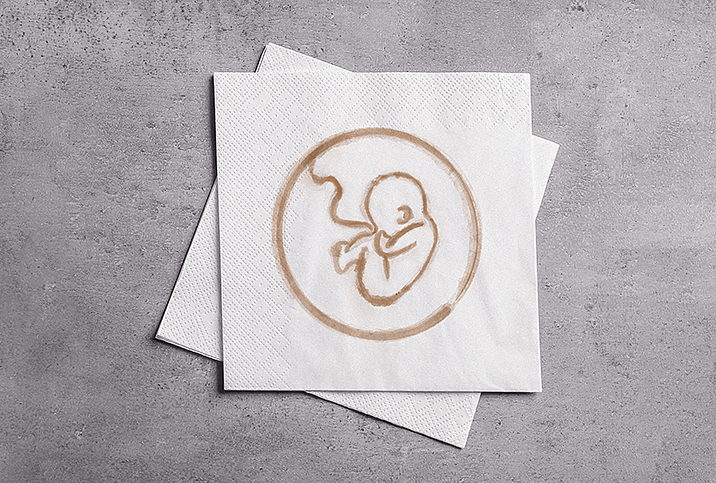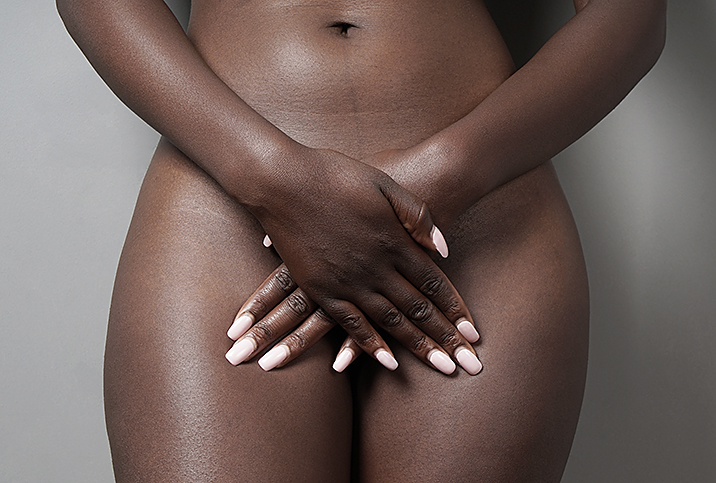What People Don't Know About Having a Miscarriage

At 20 years old, I had my first of four miscarriages.
I had recently gotten up the courage to break the news to my parents of my surprise pregnancy, but the next thing I knew I was hemorrhaging, creating a bloodbath in their house and terrified. I waited at least 10 minutes to call my mom in for help. I was in shock. Even though my pregnancy wasn't planned, I was genuinely excited to be a mother.
After being rushed to the hospital for an emergency dilation and curettage (D&C), a procedure where a doctor dilates your cervix so that the uterine lining can be scraped to remove tissues, I figured this was God's cruel way of punishing me for an abortion I had when I was 18 years old. Even as a non-religious person, I convinced myself I deserved this.
Doctors said “These things just happen," and “It’s the luck of the draw.” According to the Miscarriage Association, medical professionals don’t even consider testing for fertility issues until you have three losses. Miscarriage is much more common than you may think, as the figures that exist are based only on women who were admitted to the hospital. They do not include those who miscarried at home or were only in contact with their general practitioner's (GP) office. The pregnancy charity Tommy’s said 1 in every 4 women will miscarry a baby.
“Every baby book and doctor says you shouldn’t tell people you’re pregnant before your 12-week scan ‘In case something happens,'" said Alison, a 34-year-old educational psychologist who found out during her first scan that her baby had died. "But that infers that you’re also not supposed to tell people that something did happen. It reinforces the idea that miscarriage is something that you should feel guilty about and keep secret.”
With more honest conversation and a willingness to be open, people can begin to support themselves and others and shine a light on this painful but common experience.
The physical part can be ugly
Miscarriage often manifests the same way as a period, with blood in your underwear. Depending on how far along you are, how much time has passed since the baby died or your sensitivity to hormonal changes, it can be much more physical. Sometimes it’s more than a spot of blood. I once had to scoop a beloved fetus from a toilet bowl in the dentist's office I worked at, put it in a Tupperware dish that I found in the office kitchen and carry along with my workday for another couple of hours until my GP could see me and test the fetus.
No one tells you that your hormones are adjusting since they were preparing for a pregnancy that's not happening anymore. Estrogen and progesterone levels rise during pregnancy and when the fetus dies, those hormones crash. In addition to the obvious trauma of a miscarriage, emotions, breast tenderness and nausea are all caused by the change in hormonal levels.
The smell of the dead tissue that follows a miscarriage is rarely mentioned. The physical toll is just as impactful as the mental.
It’s not just all about you
It’s really easy to get caught up in self-blame and guilt. While it may feel necessary to feel sorry for yourself, it also affects others in your sphere.
Perhaps your partner blames themselves for letting you carry in a heavy bag of groceries or for telling you that a couple of sips of wine to unwind was not a big deal. Maybe the grandparents are devastated with grief for having lost a grandchild that they had already grown to love. Everyone is affected during a miscarriage. Make an effort to create a safe space for the entire family to share how they feel, so that the experience can help bring you closer, not drive you apart. Holding space for one another to share emotions and grieve is essential in recovery.
It’s okay to feel conflicting emotions
In "Wild Feminine" author Tami Lynn Kent writes: “Miscarriage is birth and death simultaneously … ecstatic connection and unquenchable loss. The uterus dilates and contracts, as in the process of birth. In its wake follows an ancient grief.”
Experiencing a miscarriage can drown you in a waterfall of emotions. You can feel independent and needy, relieved and deeply sad, compassionate while harboring guilt. You may be ecstatic to find out you are pregnant again while being absolutely terrified of another miscarriage.
I'm now 43 years old and utterly grateful for my three grown children. But there are still nights when I wake up in the middle of the night aching with sadness for “what could have been.”
There is no correct way to feel after having a miscarriage. If you feel imprisoned by your emotions, start by piecing together your thoughts to form some type of clarity of how you're really feeling. Everything you feel—no matter how conflicting or nonsensical—is valid.
Sometimes, it's fixable.
We often think the worst, that we are genetically cursed and will never have kids. But according to the American Pregnancy Association (APA), at least 85 percent of women who have suffered a miscarriage will go on to have a healthy, full-term pregnancy.
For example, Alison, a 44-year-old educational psychologist, had excessive blood clotting, which had led to her miscarriages. “My treatment consisted of 150mg of aspirin and some extra folic acid,” she explained. “I can’t believe I lost five babies, and the cure was that simple.” Another example is Christine, a 33-year-old physician's assistant, who was diagnosed with nothing more than a weak cervix. She had to get a stitch put in to support the cervix and stop it from opening too early.
Low levels of vitamin D have been are a culprit in recurrent miscarriage, explained London conception specialist Zita West. “Since we introduced vitamin D testing in our clinic, we’ve discovered up to 68 percent of the women we treat for fertility problems are deficient in it,” she said. According to the Indian Journal of Endocrinology and Metabolism, taking Vitamin D supplements regularly can sometimes promote a healthy, successful pregnancy. Before you convince yourself of the worst-case scenario, hold some room for other possibilities.
While I had four miscarriages, I did have three healthy, full-term pregnancies interspersed between them. I didn’t knowingly change anything in my diet or medical care. Some of the pregnancies “stuck” and some simply did not, and how or why is a mystery to me. What I did learn to change over the years was to not continue to carry the shame, anger and insecurity I previously felt towards my body. I’ve learned that I do not have to carry the grief and sadness alone. The more we inform ourselves and openly communicate about this very common occurrence, the more support that a woman who miscarried will have.


















